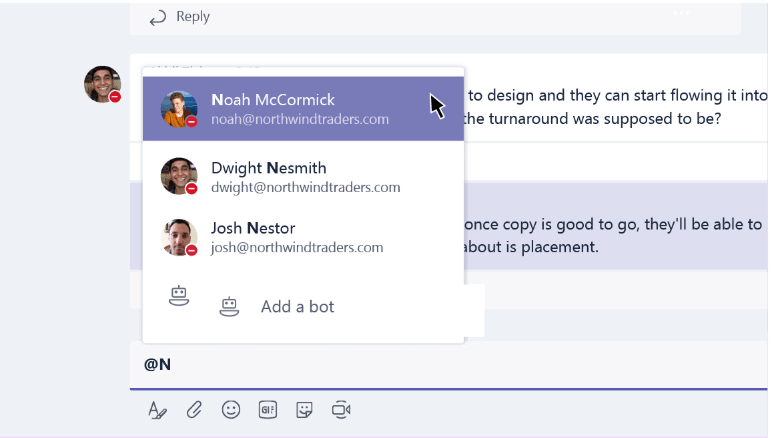Former Black Basta Hackers Harness Python Scripts to Exploit Microsoft Teams in 2025

In recent developments, cybercriminals, notably former members of the notorious Black Basta group, have intensified their attacks, targeting Microsoft Teams through sophisticated Python scripts. This revelation underscores the evolving nature of cyber threats in the digital landscape of 2025. As organizations increasingly rely on platforms like Microsoft Teams for collaboration and communication, understanding these emerging vulnerabilities becomes crucial.
The Genesis of the Exploitation
Background of Black Basta
The Black Basta group, once famed for its ransomware exploits, has disbanded but left behind a wealth of technical expertise now repurposed in new cybercriminal activities. Former members have reportedly shifted focus to exploiting cloud-based solutions, with Microsoft Teams becoming a primary target.
Why Microsoft Teams?
Microsoft Teams has become a cornerstone for businesses, enabling remote work and collaboration. Its widespread use makes it an attractive target for cybercriminals seeking to exploit any overlooked vulnerabilities.
– Popularity: Microsoft Teams boasts over 300 million active users, making it a lucrative target.
– Integration: With integrations that span Microsoft Office 365 and third-party applications, vulnerabilities can lead to widespread breaches.
– Data: Sensitive corporate data and communications are regular transactions within the platform.
Methodology of the Attack
Utilizing Python Scripts
The individuals formerly associated with Black Basta have adapted their expertise in Python programming to develop scripts capable of penetrating Teams’ defenses.
Key Methods Include:
- Credential Harvesting: Python scripts are designed to deceive users into revealing login credentials through sophisticated phishing campaigns.
- Chat Bot Infiltration: Malicious bots are inserted into Teams channels, mimicking legitimate users to extract information.
- Data Exfiltration: Once inside, scripts systematically exfiltrate sensitive data, leveraging automated processes.
Technical Execution Steps
1. Initial Access: Entry through socially engineered phishing emails linked to Teams notifications.
2. Script Deployment: Python scripts are deployed after securing user credentials.
3. Privilege Escalation: Scripts are used to gain higher-level access within the Microsoft Teams environment.
4. Persistence: Setting up mechanisms to retain access even if initial breaches are detected.
5. Data Exfiltration: Transferring harvested data back to the attackers for potential sale or ransom.
Impacts and Risks
Organizational Vulnerability
Organizations face heightened risks as attackers exploit vulnerabilities in otherwise secure environments. The outcomes of such incursions are severe.
– Data Breaches: Potentially widespread exposure of confidential information.
– Financial Losses: Ransom demands, regulatory fines, and reputational damage contribute to substantial financial impact.
– Operational Disruption: Compromised communications and systems can lead to significant operational setbacks.
Threat to Individual Privacy
For individuals, these exploits pose significant threats to privacy as personal messages and data are susceptible to unauthorized access and misuse.
Mitigation and Prevention
To counteract these sophisticated threats, organizations must pursue robust defense strategies. Below are recommended measures to bolster security protocols.
Strengthening Authentication
– Multi-Factor Authentication (MFA): Implementing MFA can reduce unauthorized access risks significantly.
– Regular Credential Audits: Frequent audits to ensure compromised credentials are swiftly identified and revoked.
Enhancing User Training
– Security Awareness Programs: Regular training sessions to educate users on identifying phishing attempts and suspicious activities.
– Simulated Phishing Exercises: Conduct regular simulations to assess and improve user vigilance.
Technical Safeguards
– AI-Driven Security Solutions: Leverage AI to detect and respond to unusual activity patterns in real time.
– Regular Software Updates: Ensure all systems, including Microsoft Teams, are updated to the latest versions to address known vulnerabilities.
– Network Segmentation: Isolate sensitive data environments to limit the spread of breaches.
The Future of Cybersecurity Posture
As cyber threats continue to evolve, so too must our cybersecurity defenses. The attack on Microsoft Teams using Python scripts is a stark reminder of the persistent ingenuity of cybercriminals and the need for continuous vigilance and adaptation in cybersecurity practices.
Strategic Partnerships and Innovations
– Collaboration with Cybersecurity Firms: Forming alliances with dedicated cybersecurity firms for advanced threat detection and response.
– Investment in R&D: Continuous investment in research and development to stay ahead of emerging technological threats.
User-Centric Security Approaches
– User Behavior Analytics: Employ analytics to monitor and understand user behavior, predicting potential security incidents before they occur.
– Adaptive Security Policies: Implement dynamic security policies that adapt to changing threat landscapes and user needs.
Conclusion
As we advance through 2025, the exploitation of platforms like Microsoft Teams through Python scripts highlights the broadened scope of cybersecurity threats in our hyper-connected world. The lessons drawn from these events emphasize an urgent need for both organizational and individual readiness against increasingly sophisticated forms of cyberattacks. By fostering awareness, utilizing innovative technologies, and prioritizing security across all levels, we can better safeguard our critical infrastructures in an ever-evolving digital ecosystem.
Subscribe to keep reading
It's a subscribers only post. Subscribe to get access to the rest of this post and other subscriber-only content.
Post a Comment for "Former Black Basta Hackers Harness Python Scripts to Exploit Microsoft Teams in 2025"
Post a Comment